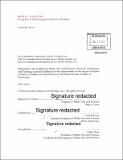| dc.contributor.advisor | Iyad Rahwan. | en_US |
| dc.contributor.author | Awad, Edmond | en_US |
| dc.contributor.other | Program in Media Arts and Sciences (Massachusetts Institute of Technology) | en_US |
| dc.date.accessioned | 2017-12-05T19:17:05Z | |
| dc.date.available | 2017-12-05T19:17:05Z | |
| dc.date.copyright | 2017 | en_US |
| dc.date.issued | 2017 | en_US |
| dc.identifier.uri | http://hdl.handle.net/1721.1/112532 | |
| dc.description | Thesis: S.M., Massachusetts Institute of Technology, School of Architecture and Planning, Program in Media Arts and Sciences, 2017. | en_US |
| dc.description | Cataloged from PDF version of thesis. | en_US |
| dc.description | Includes bibliographical references (pages 79-85). | en_US |
| dc.description.abstract | While technological development of vehicular autonomy has been progressing rapidly, a parallel discussion has emerged with regard to the moral implications of a future wherein people hand over to autonomous machines the controls to a mode of transportation. These discussions have entered a new phase with the U.S. Department of Transportation (DoT) releasing a 15-point policy that requires manufacturers to explain how their AVs will handle "ethical considerations". However, there is a huge gap in our understanding of the ethical perception of Al, as there have been few large-scale empirical studies on human moral perception of outcomes to autonomous vehicle moral dilemmas. Additionally, public engagement is a very important piece of the puzzle, especially given the emotional salience of traffic accidents. With that in mind, I co-developed the "Moral Machine" (http://moralmachine.mit.edu). Moral Machine is a platform for gathering a human perspective on moral decisions made by machine intelligence, such as AVs. The web site went viral, and got covered in various media outlets. This web site has also been a valuable data collection tool, allowing us to collect the largest dataset on Al ethics ever collected in history (with 30 million decisions by over 3 million visitors, so far). This thesis will introduce the Moral Machine platform as a data-gathering platform. Moreover, insights about the human perception of the different routes to full automation will be covered in the thesis, with the data collected through other online platforms. | en_US |
| dc.description.statementofresponsibility | by Edmond Awad. | en_US |
| dc.format.extent | 85 pages | en_US |
| dc.language.iso | eng | en_US |
| dc.publisher | Massachusetts Institute of Technology | en_US |
| dc.rights | MIT theses are protected by copyright. They may be viewed, downloaded, or printed from this source but further reproduction or distribution in any format is prohibited without written permission. | en_US |
| dc.rights.uri | http://dspace.mit.edu/handle/1721.1/7582 | en_US |
| dc.subject | Program in Media Arts and Sciences () | en_US |
| dc.title | Moral machines : perception of moral judgment made by machines | en_US |
| dc.title.alternative | Perception of moral judgment made by machines | en_US |
| dc.type | Thesis | en_US |
| dc.description.degree | S.M. | en_US |
| dc.contributor.department | Program in Media Arts and Sciences (Massachusetts Institute of Technology) | en_US |
| dc.identifier.oclc | 1012940004 | en_US |
